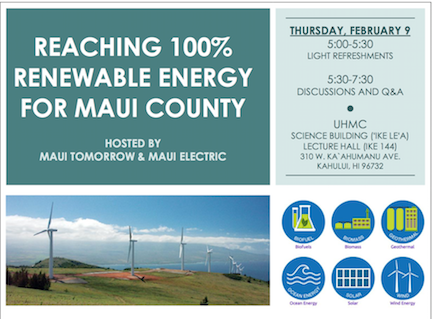Yesterday, the Public Utilities Commission of the State of Hawai‘i (PUC) issued an order denying several proposals by Hawai‘i’s investor-owned utilities that would have raised barriers to homes and businesses installing renewable energy systems like rooftop solar. The ruling resolved a handful of disputed issues between the utilities and renewable energy organizations over rules for connecting renewable systems to the electric grid. Earthjustice represented Hawai‘i Solar Energy Association (HSEA) in the case.
Several weeks ago, on November 29, 2011, the PUC approved a settlement between the parties that adopted improved rules that should ease the way for more rooftop solar on the grid.
The remaining issues in dispute largely focused on a proposal that would have allowed the utilities to impose expensive remote monitoring and control equipment—known as “SCADA,” for “supervisory control and data acquisition”—on systems as small as 20 kilowatts (kW) or less. This raised concerns because it would have given the utilities the ability to turn off even residential photovoltaic (PV) systems at their sole discretion. Solar advocates opposed the proposal because it would deter the installation of such systems, especially since more cost-effective options for tracking solar output are available.
The PUC ruled that the utilities did not show that their proposal was “just and reasonable,” citing the costs of SCADA equipment and the lack of support and guidelines for imposing the equipment on systems smaller than 250 kW. Instead, the PUC agreed with the renewable energy organizations that the equipment shall not be required for systems smaller than 250 kW.
“We’re pleased that the PUC upheld the existing framework, which supports the deployment of distributed PV systems and has helped make Hawai‘i the fastest growing solar market in the U.S.,” said Mark Duda, president of HSEA. “We hope such proactive policy making will continue.”
The PUC also rejected a proposal to grant the utilities authority to deny the interconnection of renewable systems for various vague reasons, including “unreasonable costs to ratepayers.” The PUC indicated that such barriers are inappropriate while reliability standards for the Hawai‘i grids are still being developed in a separate ongoing proceeding. The PUC also clarified that “unreasonable cost” is a rate issue that should be decided by the PUC rather than a technical issue that interconnection rules are intended to address.
“If we’re going to break our addiction to imported oil, we need to shift the focus from barriers and toward solutions,” said Earthjustice attorney Isaac Moriwake. “We applaud the PUC’s ruling and hope we can continue this constructive path to a clean energy future in Hawai‘i.”


